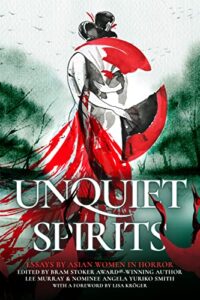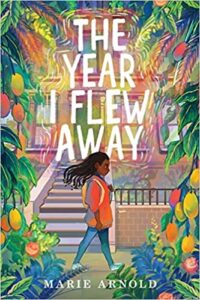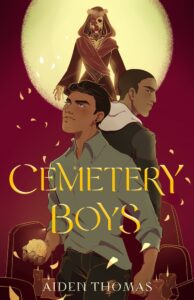Unquiet Spirits: Essays by Asian Women in Horror edited by Lee Murray and Angela Yuriko Smith, with a foreword by Lisa Kroger.
Black Spot Books Nonfiction, 2023
ISBN-13: 978-1645481300
Available: Hardcover, paperback, Kindle edition
( Bookshop.org | Amazon.com )
I read an uncorrected ARC of this book.
Unquiet Spirits is a collection of 24 personal essays by women across the Asian diaspora, grounded in the authors’ family history, relationship to their culture, and the supernatural.
One of the takeaways from reading this is that the Asian diaspora is far from monolithic. Each of the authors has a distinct background and set of circumstances: one certainly cannot speak for all.
Some of the authors include Nadia Bulkin, who is Javanese-American, Geneve Flynn, who is a Chinese-Australian born in Malaysia, Rena Mason, who is a first-generation immigrant to America of Thai-Chinese descent, and Tori Eldridge. who was born in Hawaii and is of Hawaiian, Korean, and Norwegian descent, all of whom approached their essays differently.
The diversity of the authors and their choices of what each individual focused on is what really drew me in. That I read almost 300 pages in tiny print on a PDF is a testament to the quality of the writing.
I learned a lot from these essays: in Lee Murray’s essay on displaced spirits I learned that Chinese immigrants to Australia expected to be returned to China for burial, or become hungry ghosts, and from Nadia Bulkin’s essay that the terms “amok” and “latah” originated in Indonesia, to name just a few. The authors wrote about growing up feeling out of place, feeling unwilling or unable to meet expectations about filial duty, marriage, and motherhood. They wrote about hungry ghosts, fox demons, and yokai
They wrote about finding and using their voices.
I read this a few essays at a time. There’s a lot to think about in each one, so I think that’s a good way to approach this book. I highly recommend taking the time to do so.
Reviewed by Kirsten Kowalewski







Follow Us!